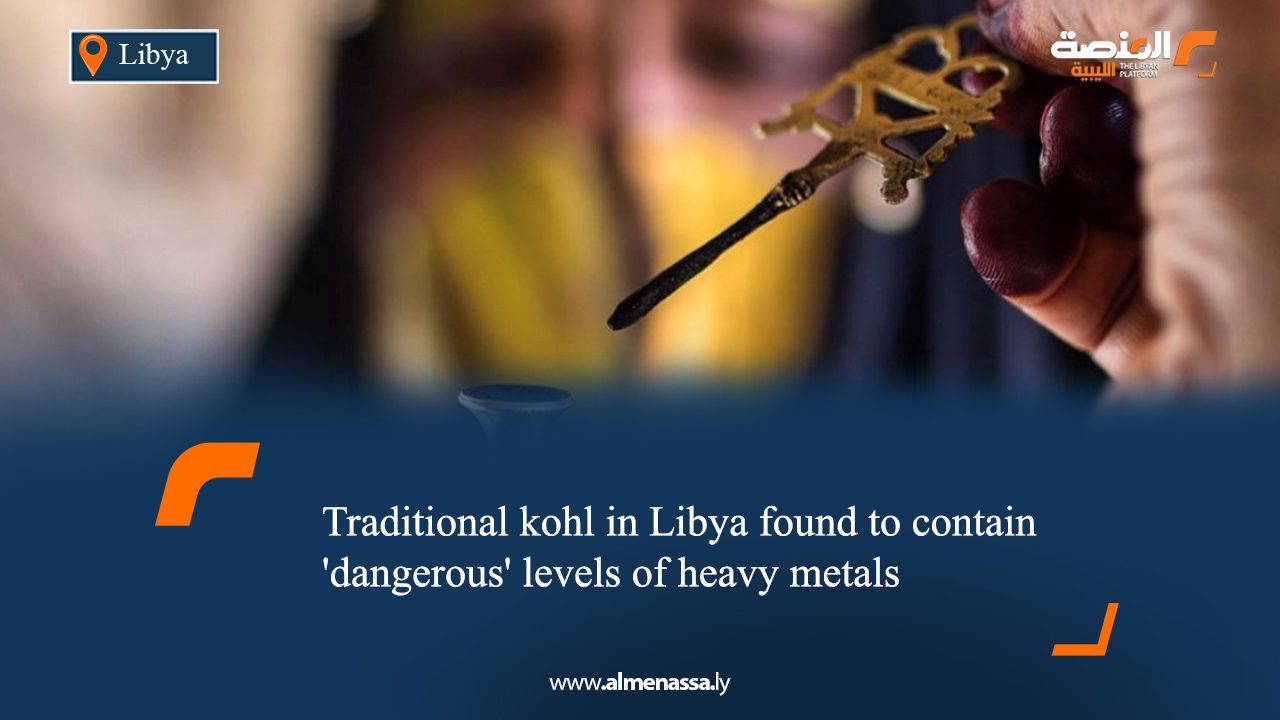A scientific paper, co-authored by the Libyan Advanced Chemical Analysis Centre and a research team from Sebha University, including Dr. Abubaker El Sharif, has revealed alarming findings regarding traditional kohl. Titled “Estimation of heavy metal levels (lead, cadmium, and zinc) in samples of raw, commercial, and traditional kohl sold in Libya,” the study highlights significant public health concerns.
The research indicates that traditional kohl, alongside certain other cosmetic products, contains “elevated” levels of heavy metals. Notably, lead was detected in some samples at concentrations exceeding 10,000 micrograms/gram – a figure well above the limits deemed safe by World Health Organisation (WHO) standards. Analysis also confirmed the presence of cadmium and zinc in all 27 diverse samples examined, which included eyeliners, tattoo cosmetics, and various types of raw and commercial kohl.
The paper stresses that using traditional kohl on infants poses a “severe risk” to their health, exposing them to high levels of lead that could cause serious long-term damage. The study’s findings underscore an “urgent need” for stricter regulation of cosmetic products in Libyan markets, particularly those of unknown origin, and for increased consumer awareness regarding their potential dangers.
Researchers have recommended further studies to identify other potential toxic elements in kohl products. They also called for intensified routine inspections by regulatory bodies to prevent the circulation of products that endanger public health. Additionally, women were advised to reduce daily cosmetic use and avoid unverified brands, with a specific warning to mothers against using traditional kohl on children.


